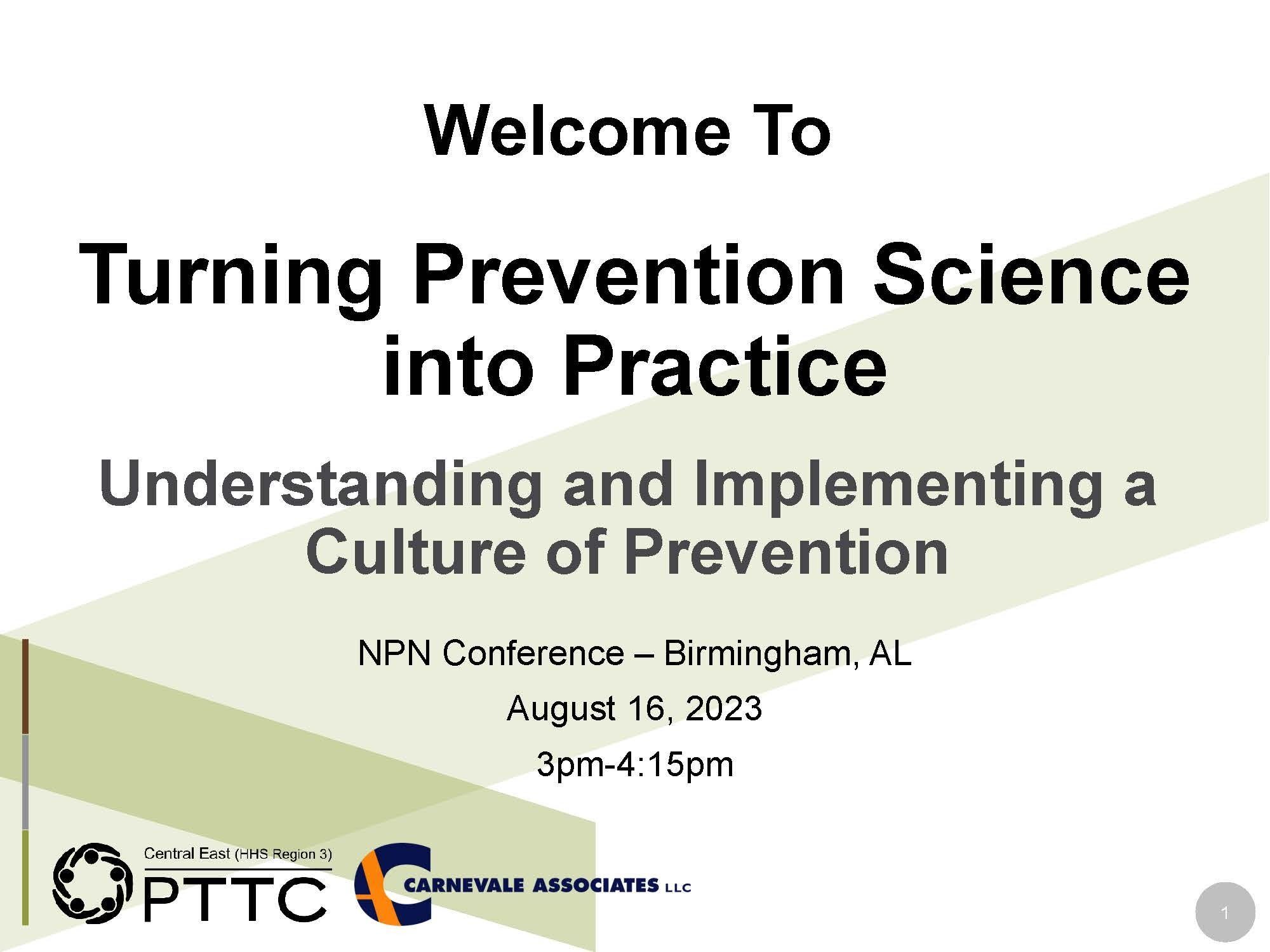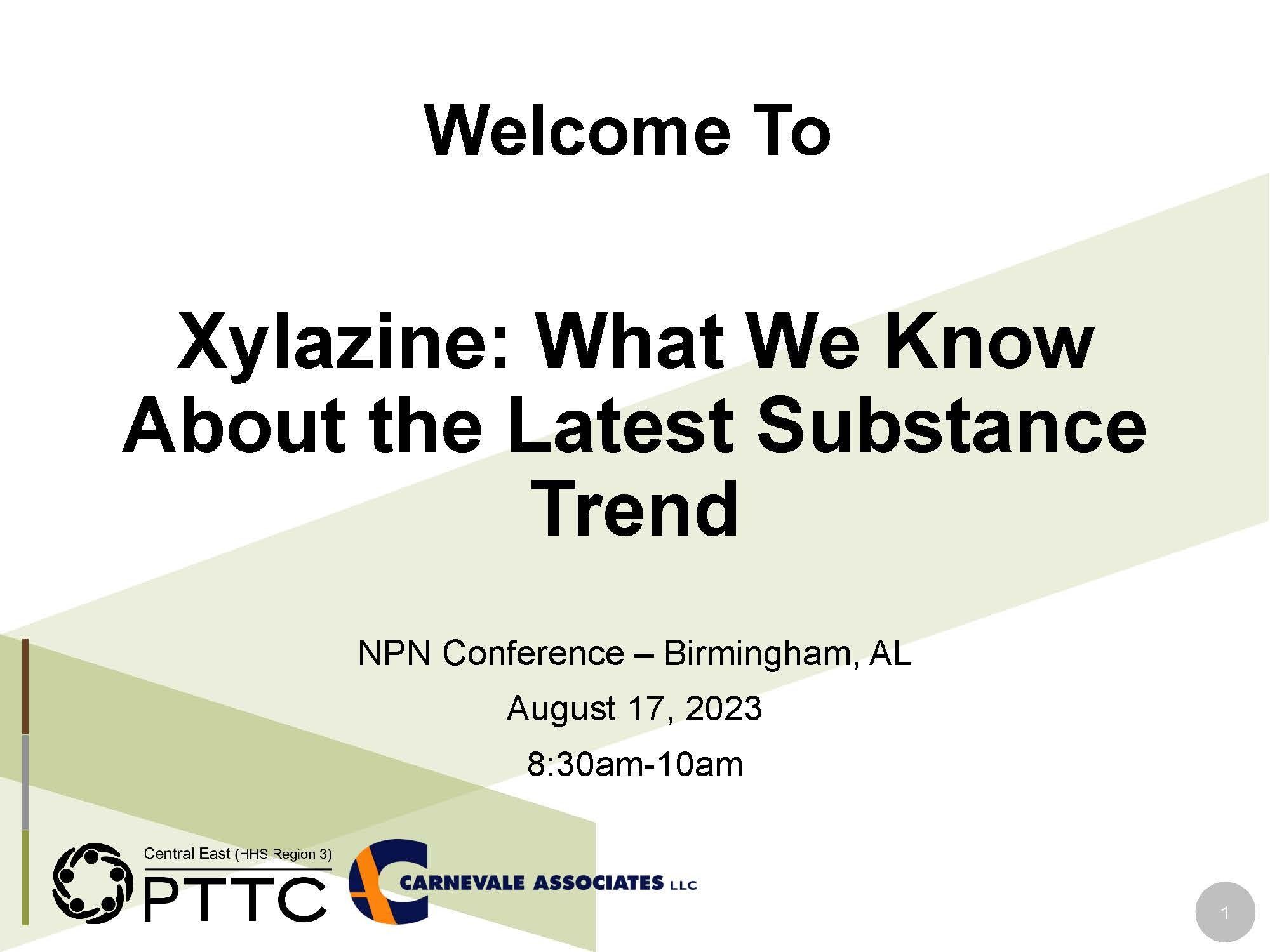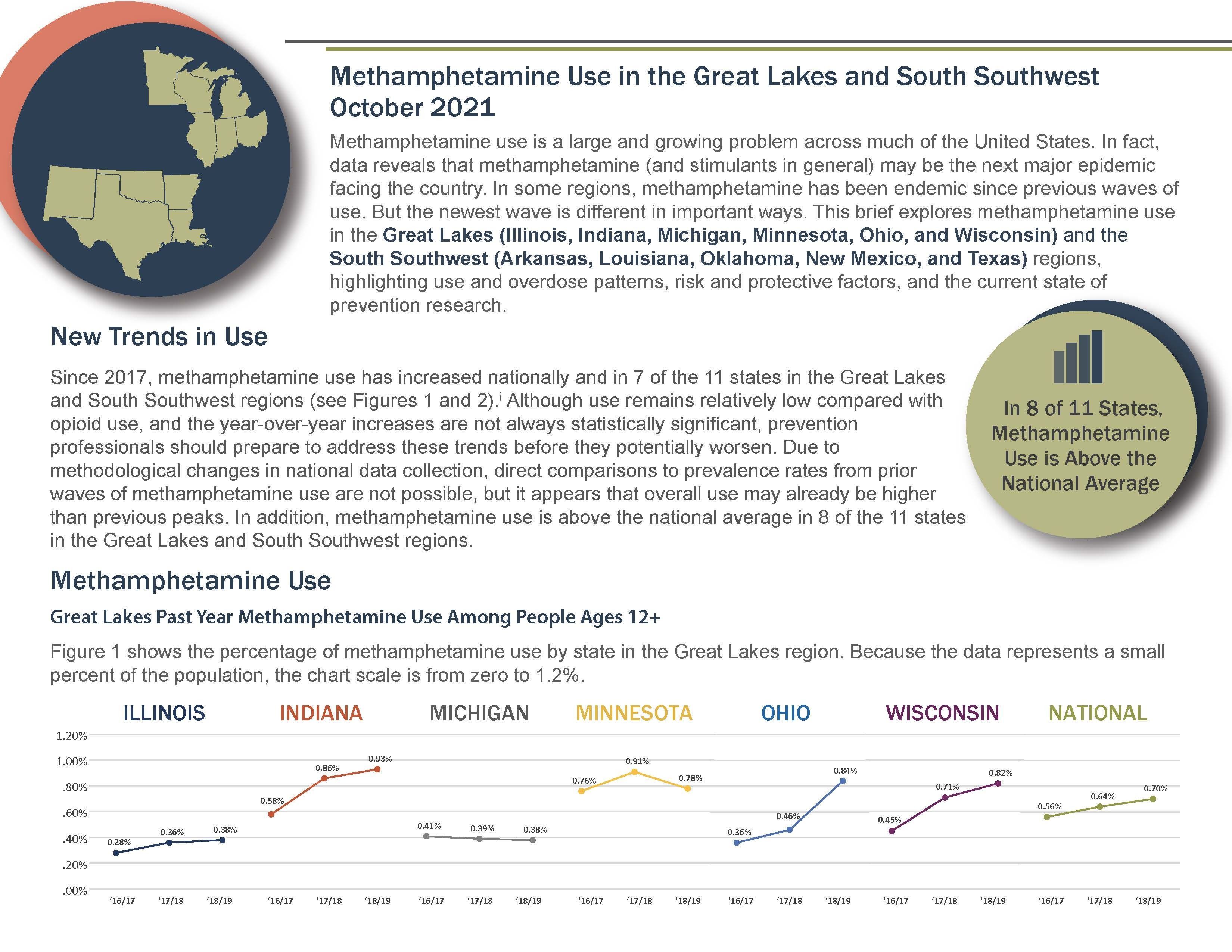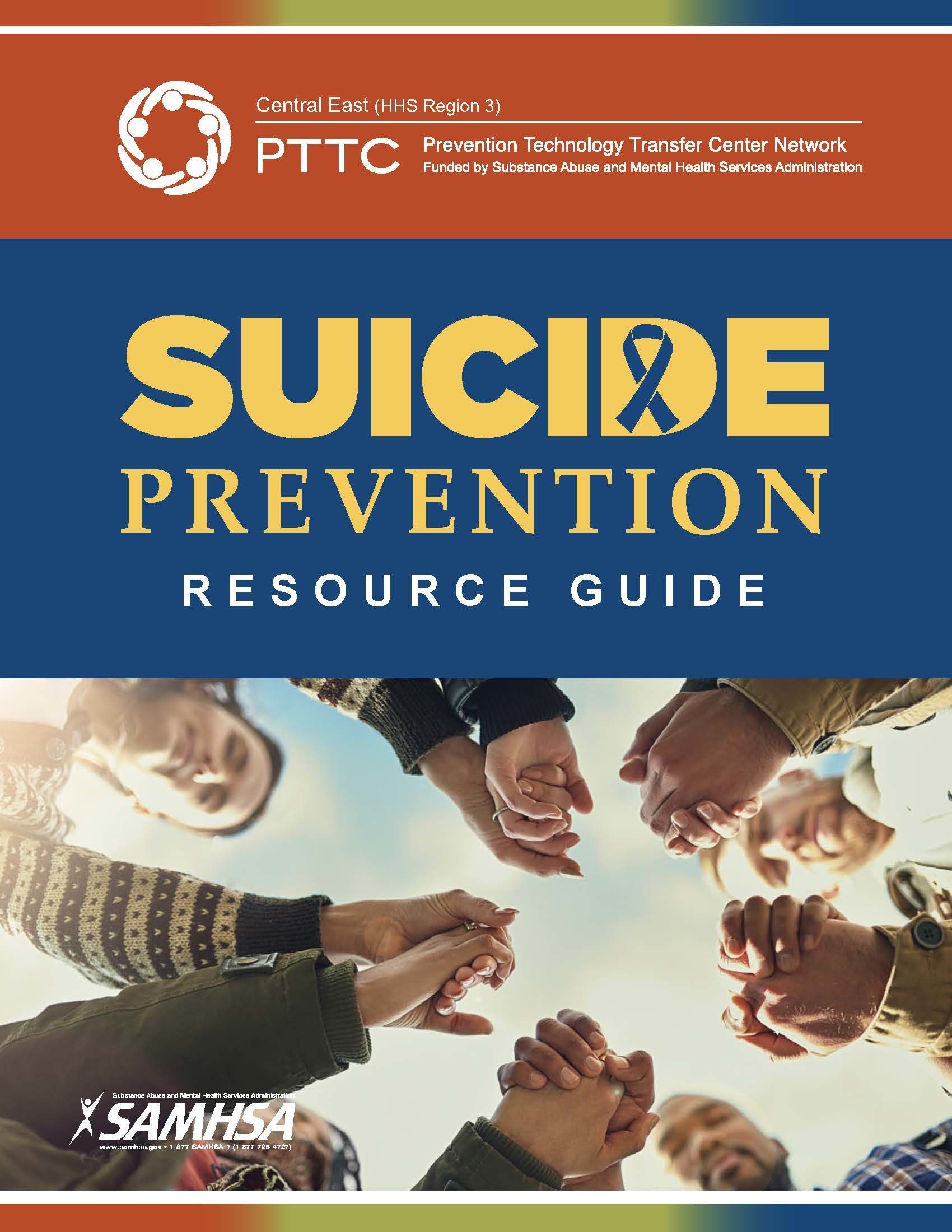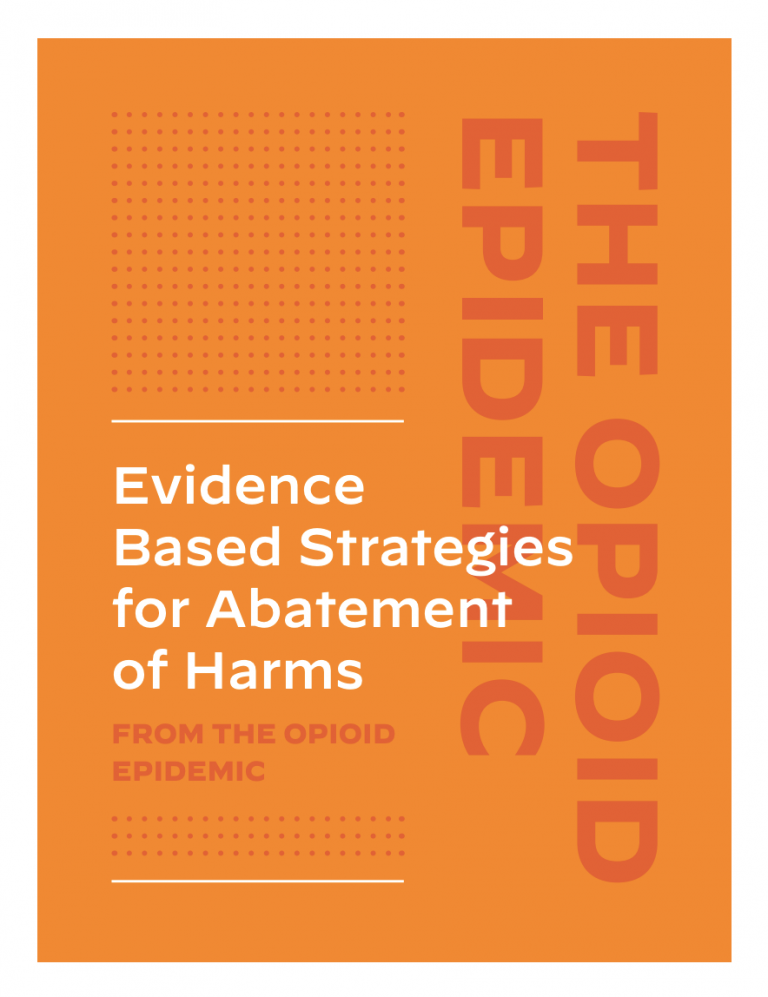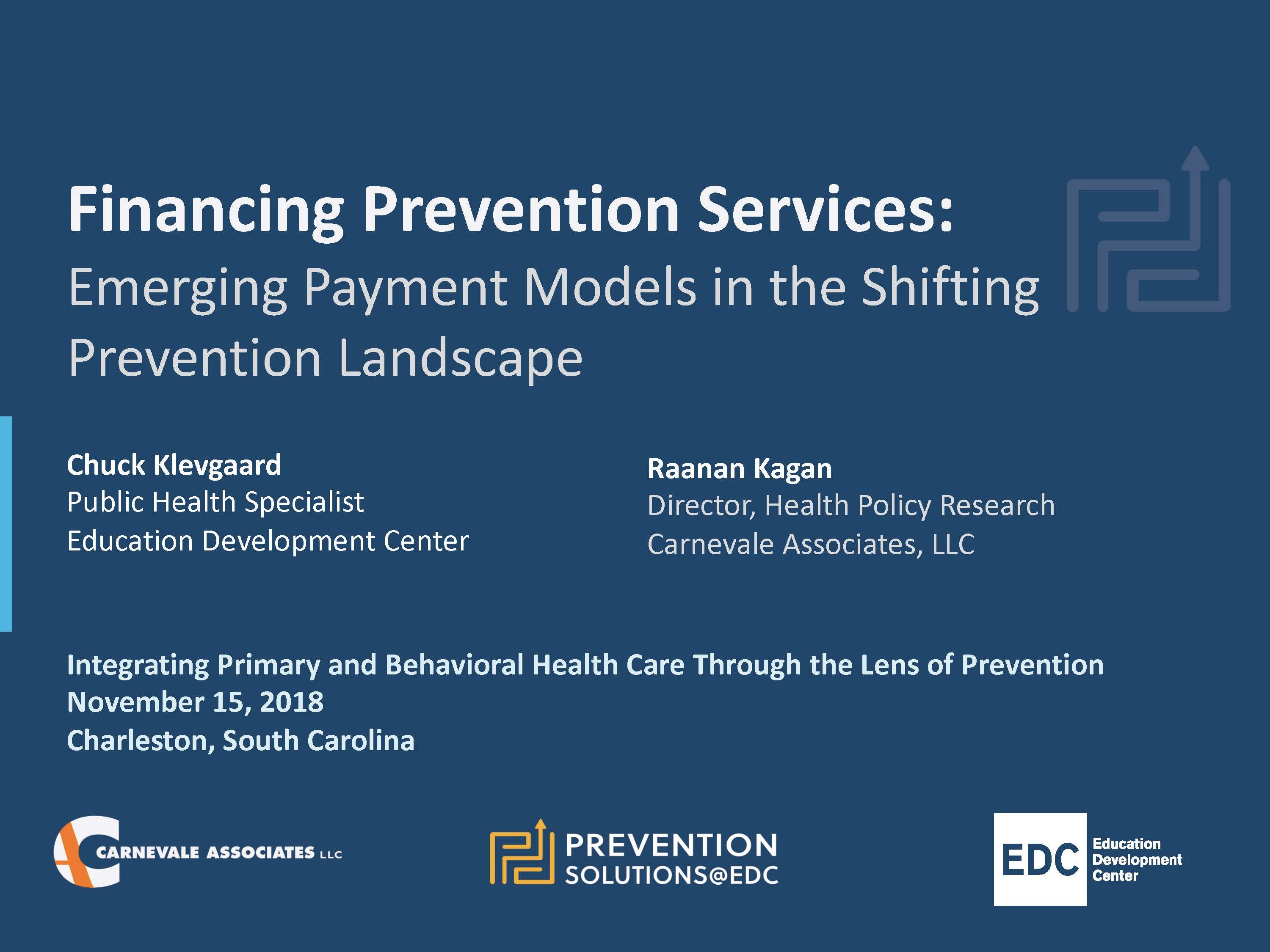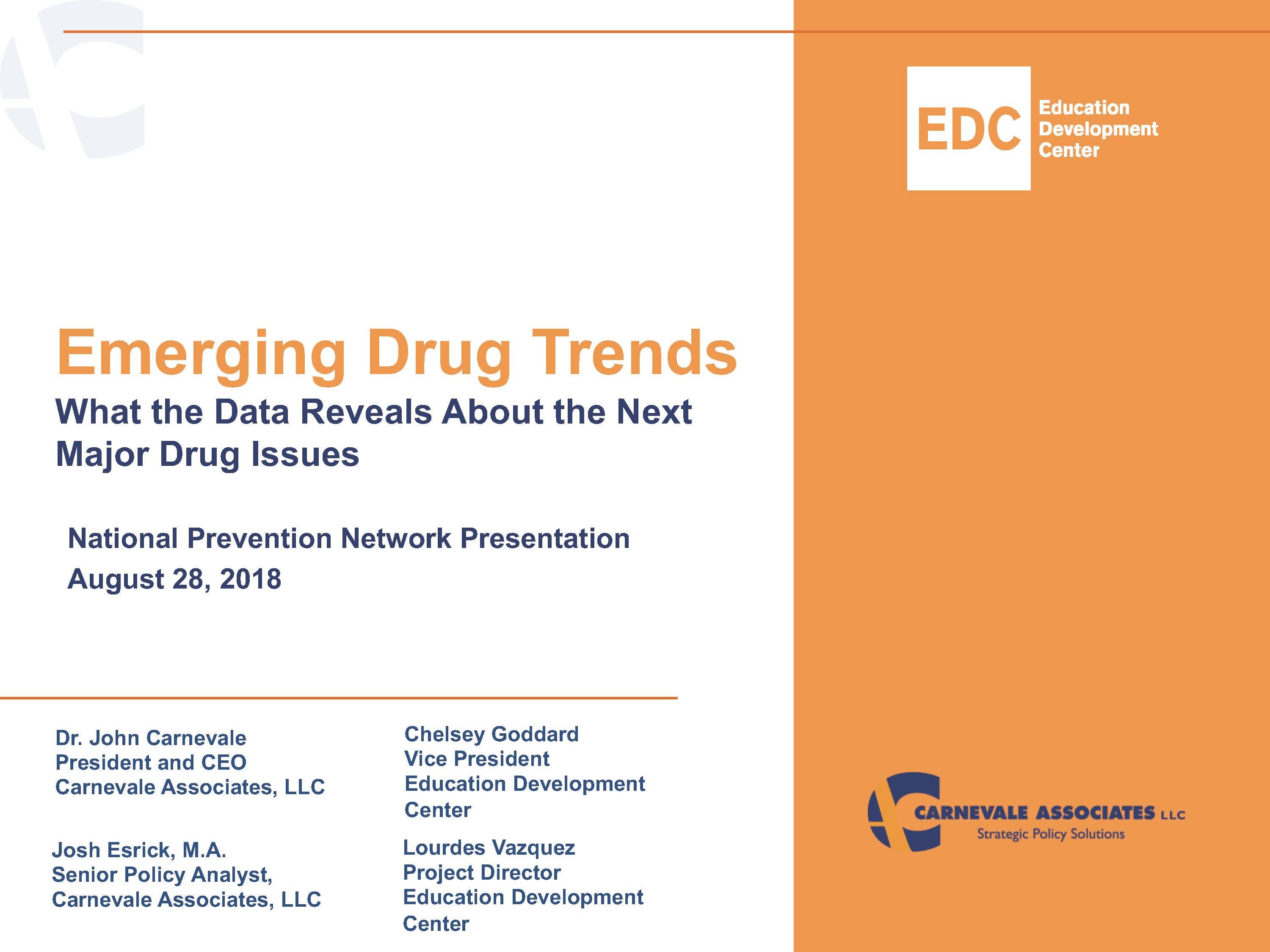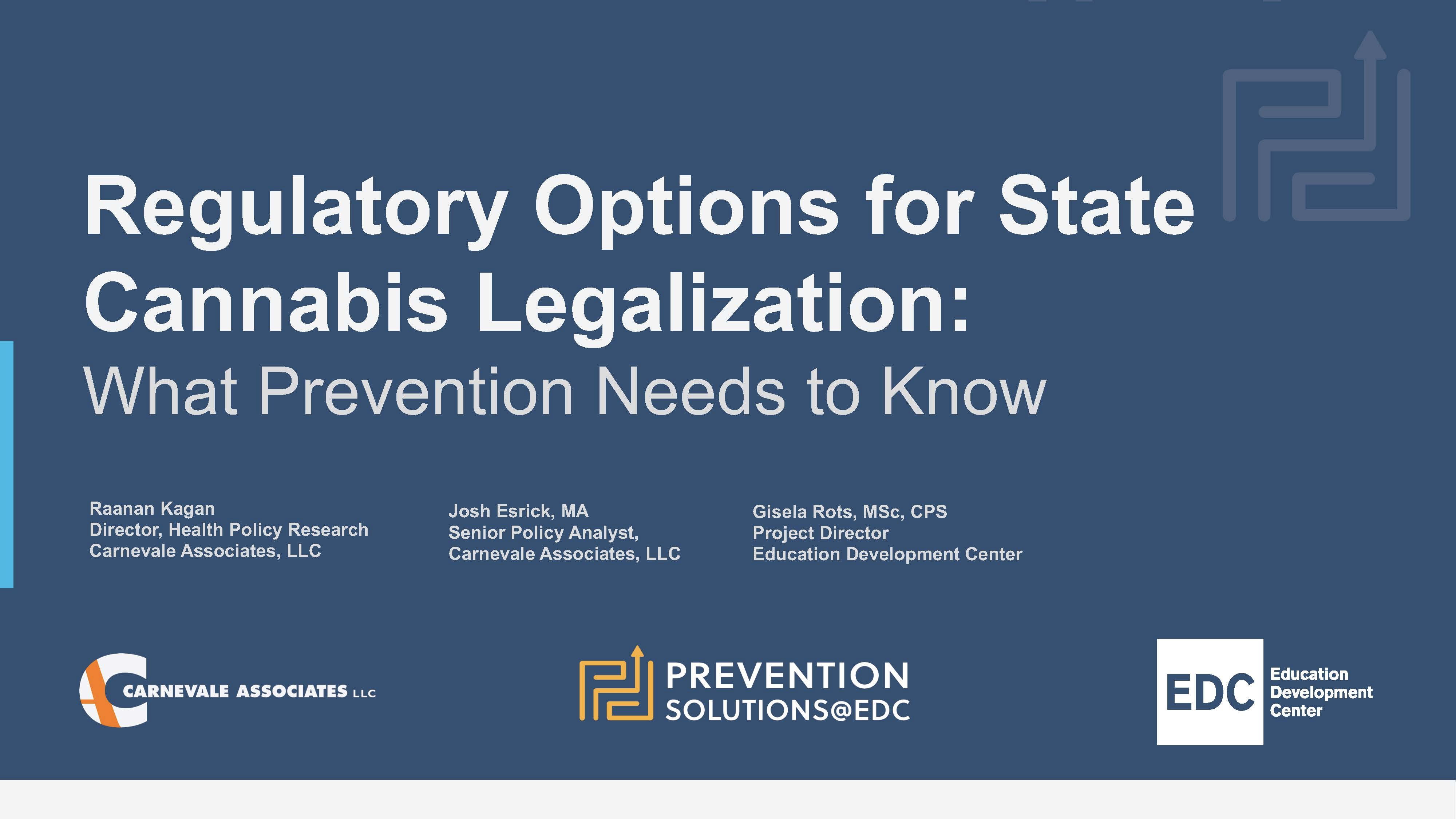Reports & Presentations
Delivered in conjunction with the Danya Institute at the National Prevention Network Conference on August 16, 2023 in Birmingham, Alabama.
Prevention science is the development and implementation of evidence-based strategies to improve the health and wellbeing of people, families, and communities. This presentation defines the concept of prevention science and explains its relevance to prevention professionals. It also discusses strategies and provides recommendations for using prevention science to build a culture of prevention within public health.
Delivered in conjunction with the Danya Institute at the National Prevention Network Conference on August 17, 2023 in Birmingham, Alabama.
Xylazine is an emerging issue across the United States. This presentation summarizes the available research and data on xylazine use for public health professionals, specifically in the context of broader substance use prevention.
Produced on behalf of the South Southwest and Great Lakes Prevention Technology Transfer Centers, this report highlights the rising use and consequences of methamphetamine in the regions. It also summarizes known risk factors for methamphetamine use and the evidence base for methamphetamine prevention and overdose prevention strategies. Without intervention, methamphetamine may become the next major substance use epidemic in the United States, and appears to already be reaching that status in some places. This report was designed to empower prevention professionals through understanding the scope of the issue in their regions and the need to respond quickly and effectively.
Produced in collaboration with the Central East Prevention Technology Transfer Center (PTTC), this resource guide and literature review present information to support suicide prevention efforts.
The resource guide is a catalog of relevant organizations and tools, at the national level and within the Central East region (DE, MD, PA, VA, WV, and DC). Original publication date: March 2020
The literature review presents the evidence base for the importance for addressing risk of suicide within the context of substance use prevention. It provides information on the linkages between substance use and risk of suicide and provides a reference guide on evidence-based programs for simultaneously addressing both issues. Original publication date: December 2021
Jointly produced by several national addiction experts, this comprehensive report contains recommendations and evidence-based strategies for investment of litigation settlement funds to end the opioid crisis and mitigate future harms.
This report was designed to support and empower state and local officials in making critical allocation decisions and consolidates the best research evidence to provide recommendations for high-impact investments that will improve the addiction treatment system, strengthen prevention and harm reduction programming, and address substance use disorder within the criminal justice system. In addition to outlining the scientific support for each recommendation, the authors include detailed guidance related to economic impacts and policy considerations.
Produced in collaboration with the Central East Prevention Technology Transfer Center, this literature review summarizes and presents the evidence base for the importance of cultural competency to substance use prevention. It identifies study findings on the impact of cultural competency efforts on program results and shares SAMHSA guidance on improving cultural competency. It also provides a reference guide on evidence-based programs for improving cultural competency at the organizational level. It was designed to serve as a reference tool for interested stakeholders.
This presentation was delivered at the Integrating Primary and Behavioral Health Care Through the Lens of Prevention Conference on November 15, 2018 in conjunction with the Education Development Center (EDC). Carnevale Associates and EDC present on the changing nature of substance use prevention; the shifting health care landscape; health care payers, payment vehicles and service delivery models; and the implications of health care financing for prevention partnerships at both the individual and population health levels.
This presentation was delivered at the National Prevention Network (NPN) Conference on August 28, 2018 in conjunction with the Education Development Center (EDC). Carnevale Associates and EDC present emerging trends in opioids (including heroin and fentanyl), cocaine, methamphetamine, and marijuana -- particularly in the context of substance use prevention.
This presentation was delivered at the National Prevention Network (NPN) Conference on August 29, 2018 in conjunction with the Education Development Center (EDC). Carnevale Associates and EDC outline the state of cannabis laws at the state and local level, review pros and cons of the regulatory options available to states, consider differences between the tobacco and alcohol models of for-profit regulation, and ultimately review the implications of state-level cannabis legalization for substance use prevention professionals.
On April 7, 2016, the Public Policy Institute of California (PPIC), released a report titled "Regulating Marijuana in California." Authored by Patrick Murphy and John Carnevale, the report concludes that, if California legalizes recreational marijuana, the state should develop a single highly regulated marijuana market-- for medical and recreational uses. The report analyzes the regulatory approaches taken by Washington and Colorado-- the first two states to legalize recreational marijuana-- to help California learn from their experiences.

